Protect Health Care: Medical Ethics (poster)
A woman and a baby that survived because health-care workers provided impartial treatment – this is one of the stories told by the new set of five Health Care in Danger posters. Based on real cases, …
A woman and a baby that survived because health-care workers provided impartial treatment – this is one of the stories told by the new set of five Health Care in Danger posters. Based on real cases, …
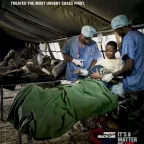
A patient that survived because a hospital was spared by fighters – this is one of the stories told by the new set of five Health Care in Danger posters. Based on real cases, they show that even in …

In response to the unprecedented situation created by the rapid expansion of the COVID-19 pandemic , the ICRC put at disposal its resources to eight Red Cross societies in the region covered by the …
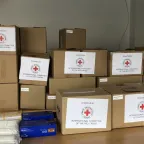
Recent scientific and technical progress has given rise to unprecedented means and methods of warfare. Technologies that only yesterday were in the realm of science fiction have the potential to …
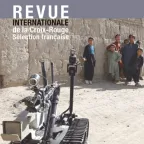
A compilation of the four quarterly IHL bibliographies issued by the ICRC Library during 2013. …
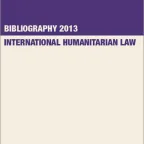
In today’s world, people’s livelihoods depend to a significant extent on markets. Sudden shocks can severely limit how markets function and, as a result, drastically reduce people’s access to …
In response to the unprecedented situation created by the rapid expansion of the COVID-19 pandemic , the ICRC put at disposal its resources to eight Red Cross societies in the region covered by the …
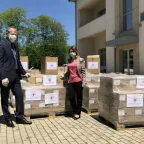
This report provides an account of the October 2014 thematic consultation of government experts on grounds and procedures for internment and detainee transfers. The consultation was part of the …
Since 2001, the ICRC has been implementing microeconomic initiatives (MEIs) for vulnerable populations in dozens of countries around the world. The beneficiaries of these programmes typically have …
Humanity in Action 2014 explains the ICRC's wide-ranging activities and how it spends its money, gives an overview of the impact of ICRC action during the year and introduces some of the people who …
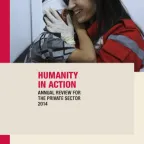
Try one of the following resources:
Created in 1863, the ICRC library, alongside the ICRC archives, provides an indispensable documentary reference on the organization itself and international humanitarian law.
International humanitarian law is based on a number of treaties, in particular the Geneva Conventions of 1949 and their Additional Protocols, and a series of other instruments.
Customary international humanitarian law consists of rules that come from "a general practice accepted as law" and that exist independent of treaty law.